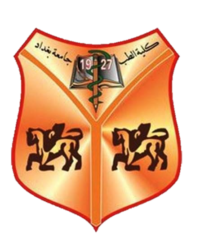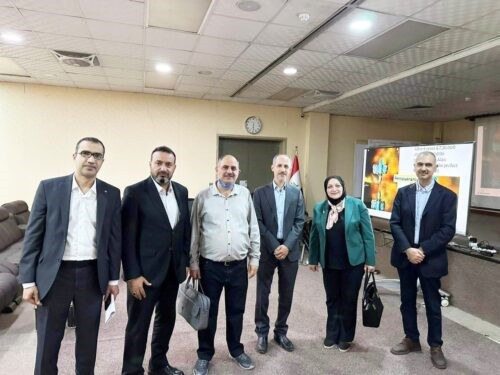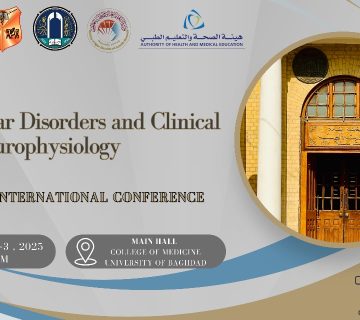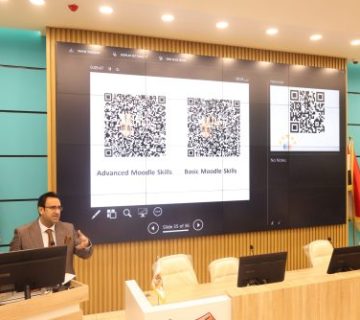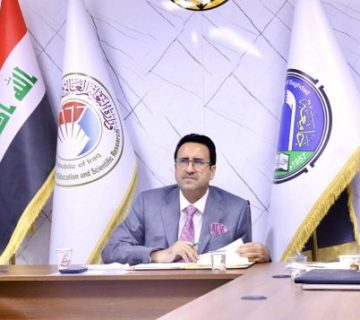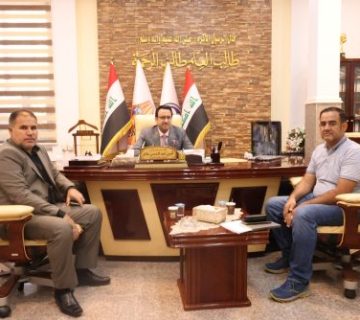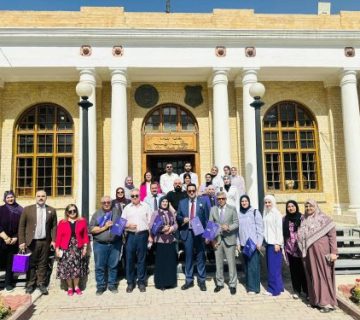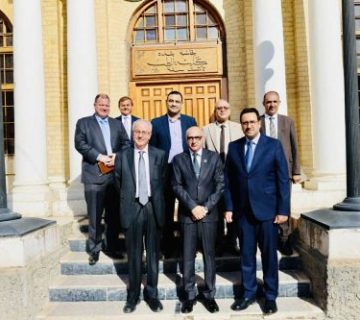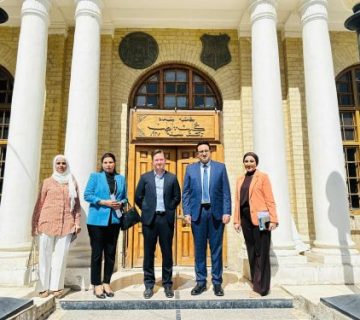The pediatric department of the College of Medicine, University of Baghdad, as part of the continuing education activities, organized a workshop entitled “Integrated Local Evaluation of the Pediatric Leukemia Treatment Center”, over two days, Wednesday, 3/15/2023 and on Tuesday, 3/21/2023, in the Great Hall of Children Welfare Teaching Hospital, Medical City, Baghdad
The workshop was attended by the Assistant Dean of the College for Scientific and Student Affairs, Prof. Dr. Haifa Salman Al-Hadithi, the Assistant Dean of the College for Administrative Affairs, Lecturer Dr. Tahseen Muzher Hashim Al-Saadi, and the Director of the Continuing Education Unit, Assistant Professor Dr. Ahmed Mohi, as well as a number of researchers and faculty of the college.
The workshop reviewed the results of the self-assessment project for health services provided by Children Welfare Teaching Hospital, Medical City, Baghdad
This project was launched by St. Jude Hospital, a pediatric cancer treatment and research institution located in Memphis, Tennessee, in the United States of America. It is a non-profit organization with projects for low- and middle-income countries.
The process of participating in this project started from the eighth month 2022 until the end of the fifth month 2023, represented by the team of the Pediatric Hematology and Oncology Center with the third international group, which includes 18 centers for the treatment of children’s cancer from different countries of the world (Egypt, Oman, Syria, the Philippines, Mexico, Syria, Brazil, China, Moldova).
Through it, the team was able to know the strengths and weaknesses in the national and local areas related to providing care for children with cancer, the availability of cancer control programs and service facilities, and the planned strategic changes in this regard.
The project aims to provide services that help health institutions improve the level of survival of patients with cancer from 30% as it is currently in low- and middle-income countries to 80% in high-income countries by 2030.
The project will also allow multiple decision makers to identify and prioritize solutions to improve care locally, act as a diagnostic tool to identify key issues requiring attention and improvement, and allow for insightful benchmarking and local tracking of progress over time. As well as determining the manpower, training opportunities, diagnostic services and treatments (supportive, chemotherapy, surgical intervention and deep radiology), as well as the estimated number of cancer cases and patient treatment outcomes

